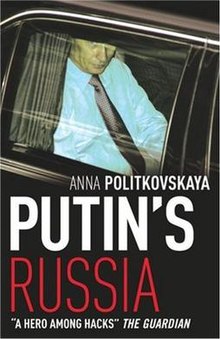The Russian mafia, otherwise referred to as Bratva, is a collective of various organized crime related elements originating in the former Soviet Union (FSU). Any of the mafia's groups may be referred to as an "Organized Criminal Group" (OPG). This is sometimes modified to include a specific name, such as the Orekhovskaya OPG. The "P" in the initialism comes from the Russian word for criminal: prestupnaya. Sometimes, the Russian word is dropped in favour of a full translation, and OCG is used instead of OPG.
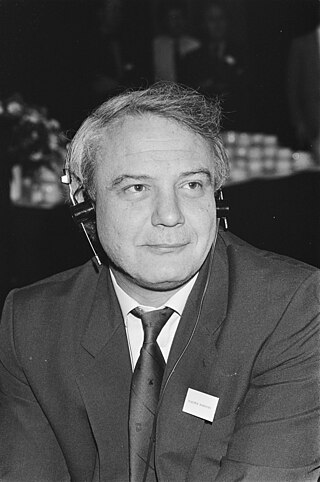
Vladimir Konstantinovich Bukovsky was a Russian-born British human rights activist and writer. From the late 1950s to the mid-1970s, he was a prominent figure in the Soviet dissident movement, well known at home and abroad. He spent a total of twelve years in the psychiatric prison-hospitals, labour camps, and prisons of the Soviet Union during Brezhnev rule.

Russia has consistently been criticized by international organizations and independent domestic media outlets for human rights violations. Some of the most commonly cited violations include deaths in custody, the systemic and widespread use of torture by security forces and prison guards, the existence of hazing rituals within the Russian Army —referred to as dedovshchina — as well as prevalent breaches of children's rights, instances of violence and prejudice against ethnic minorities, and the targeted killings of journalists.

Valeriya Ilyinichna Novodvorskaya was a Soviet dissident, writer and liberal politician. She was the founder and the chairwoman of the Democratic Union party and a member of the editorial board of The New Times.

Anna Stepanovna Politkovskaya was an American-Russian journalist and human rights activist, who reported on political and social events in Russia, in particular, the Second Chechen War (1999–2005).

Chekism is a term that relates to the situation in the Soviet Union where the secret police strongly controlled all spheres of society. It is also used to point out similar circumstances in post-Soviet intelligence states such as modern Russia. The term can refer to the system of rule itself, and to the underlying ideology that promotes and popularizes political police violence and arbitrariness against real and imagined enemies of the state.
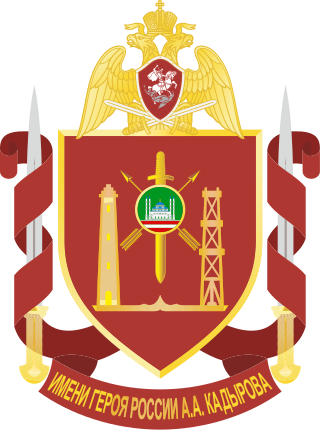
The 141st Special Motorized Regiment, also known as the Kadyrovites, Kadyrovtsy and the Akhmat special forces unit, is a paramilitary organization in Chechnya, Russia, that serves as the protection of the Head of the Chechen Republic. The term Kadyrovtsy is commonly used in Chechnya to refer to any armed, ethnically-Chechen men under the control of Head of the Chechen Republic Ramzan Kadyrov. As of 2023, the regiment's official commander was Adam Delimkhanov, a close ally of Kadyrov.
Sergei (Sergey) Lapin, also known by his radio communications call sign Kadet ("Cadet"), is a former Russian police officer who had served in Grozny, Chechnya as a Lieutenant in the OMON from the Khanty–Mansi Autonomous Okrug. He has been convicted for the torture and "disappearance" of a Chechen student.

On 7 October 2006, Russian journalist, writer and human rights activist Anna Politkovskaya was shot dead in the elevator of her apartment block in central Moscow. She was known for her opposition to the Chechen conflict and for criticism of Vladimir Putin. She authored several books about the Chechen wars, as well as Putin's Russia, and received several international awards for her work. Her murder, believed to be a contract killing, sparked a strong international reaction. Three Chechens were arrested for the murder, but were acquitted. The verdict was overturned by the Supreme Court of Russia and new trials were held. In total, six people were convicted of charges related to her death.
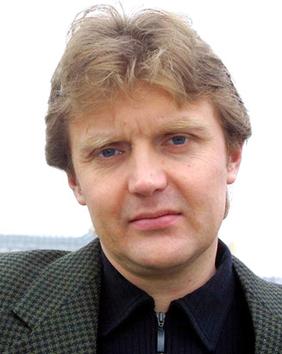
Alexander Valterovich Litvinenko was a British-naturalised Russian defector and former officer of the Russian Federal Security Service (FSB) who specialised in tackling organised crime. A prominent critic of Russian President Vladimir Putin, he advised British intelligence and coined the term "mafia state".

Yuri Petrovich Shchekochikhin was a Soviet and later Russian investigative journalist, writer, and liberal lawmaker in the Russian parliament. Shchekochikhin wrote and campaigned against the influence of organized crime and corruption. His last non-fiction book, Slaves of the KGB, was about people who worked as KGB informers.

Sergei Nikolayevich Yushenkov was a liberal Russian politician. He was assassinated on 17 April 2003, just hours after registering his political party to participate in the December 2003 parliamentary elections.
David A. Satter is an American journalist and historian who writes about Russia and the Soviet Union. He has authored books and articles about the decline and fall of the Soviet Union and the rise of post-Soviet Russia. Satter was expelled from Russia by the government in 2013. He is perhaps best known as the first researcher who claimed that Vladimir Putin and Russia's Federal Security Service were behind the 1999 Russian apartment bombings and is particularly critical of Putin's rise to the Russian presidency.

Lubyanka Criminal Group is a book by Alexander Litvinenko about the alleged transformation of the Russian Security Services into a criminal and terrorist organization.
The Komsomolskoye massacre occurred following the Battle of Komsomolskoye during the Second Chechen War in March 2000. A prominent feature in the incident was the fate of a group of about 72 Chechen combatants who had surrendered on 20 March on a Russian public promise of amnesty, but had almost all either died or "disappeared" shortly after they were detained.
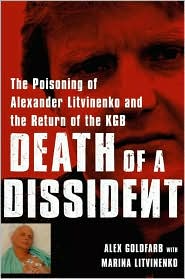
Death of a Dissident: The Poisoning of Alexander Litvinenko and the Return of the KGB is a book written by Alexander Goldfarb and Marina Litvinenko about the life and death of her husband, former FSB officer Alexander Litvinenko who was poisoned by the radioactive element polonium in London in November 2006.

The assassination of Anna Politkovskaya, the Russian journalist, writer, and recipient of numerous international awards, took place on Saturday, 7 October 2006. She was found shot dead in the elevator of her apartment block in central Moscow. Her murder, viewed as a contract killing, sparked a strong international reaction.
Putinland is a political neologism referring to Russia under the rule of Vladimir Putin. The term has been used in various contexts, from portraying Russia as a corrupt and murderous regime where the line between the security forces and organised crime is blurred to an oil and gas powered state that is ready to swat away criticism at home, squash troublesome neighbours and sacrifice personal freedoms in the name of a strong centralised state.
In politics, a mafia state or pakhanate is a state system where the government is tied with organized crime to the degree when government officials, the police, and/or military became a part of the criminal enterprise. According to US diplomats, the expression "mafia state" was coined by Alexander Litvinenko.

A Russian Diary: A Journalist's Final Account of Life, Corruption, and Death in Putin's Russia, is a book written by Anna Politkovskaya and published by Random House in May 2007 discussing Russia under Vladimir Putin. Scott Simon wrote the foreword and Arch Tait translated the writing into English. Harvill Secker published the United Kingdom edition. In some versions Jon Snow, the main news anchor for the United Kingdom's Channel 4, wrote the foreword.
